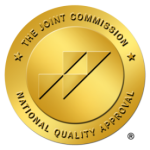Post-Rehab Challenges: Staying Sober After Fentanyl Addiction Treatment
Recovery from any addiction is a continuous journey, and fentanyl, one of the most potent opioids available, presents its own set of unique challenges. Completing a rehab program is undoubtedly an achievement to be proud of, but the real test often lies in the world outside, where triggers abound and old habits still linger at the forefront. Here, we explore the challenges that individuals face post-rehab and strategies to stay sober after fentanyl addiction treatment.
The Nature of Fentanyl
Before diving into the post-rehab landscape, it’s essential to understand the potency of fentanyl. It’s estimated to be 50 to 100 times more potent than morphine and about 50 times more potent than heroin. Such potency means even a small amount can cause an overdose, making relapse not just a setback but potentially fatal.
Challenges After Rehab
Facing Triggers
Everyday situations or emotions can act as reminders of drug use. It could be as simple as a song, a place, or even stress. For fentanyl users, these triggers can prompt intense cravings.
Actionable Advice: Engage in “trigger mapping.” Identify and list down specific triggers. Next to each trigger, jot down an alternative action or response. For example, if a certain location reminds you of drug use, opt to take a different route or plan an alternative activity when you feel compelled to visit that place.
Rebuilding Relationships:
Addiction strains relationships. Trust might be broken, and reconnecting with loved ones can be challenging. This can often leave individuals in recovery feeling lonely and often defeated in their journey. While you yourself have reached milestones in your recovery, those around you may feel hesitant to trust you so soon in your recovery. Allow your loved ones the space and grace needed to also heal from your addiction and past actions.
Actionable Advice: Open communication is key. Schedule sit-down conversations with loved ones to express your commitment to sobriety and the desire to rebuild trust. Understand that it takes time. Consider family therapy as a space where everyone can share their feelings and work towards healing.
Navigating Social Situations
Parties, gatherings, or even casual meetups can become minefields if drugs or alcohol are present.
Actionable Advice: Plan ahead. If you’re attending a social event, have an exit strategy ready if you feel uncomfortable or triggered. Initially, it might help to have a sober companion accompany you to events or to seek out sober-friendly events.
Managing Stress
Stress is a significant relapse trigger. Finding new, healthy ways to cope can be a learning curve.
Actionable Advice: Develop a daily relaxation routine. This could include activities like meditation, deep breathing exercises, yoga, or even simple walks in nature. Recognize the early signs of stress and have a go-to relaxation technique ready.
Strategies for Staying Sober
Emerging from the safe space of rehab and reentering the world as a sober individual can be both daunting and exhilarating as you enter this new chapter. This new lease on life, while promising, will be compiled with challenges and temptations that can test one’s commitment to sobriety. The key to sustained recovery lies not just in the will to stay sober, but in equipping oneself with proactive strategies. These are not mere suggestions but essential tools, honed from countless recovery stories and expert insights, that pave the way for a fulfilling, drug-free life. Let’s dive into these strategies designed to support your journey ahead.
Continuous Therapy
Regular therapy sessions can provide an avenue to process emotions, challenges, and victories. It serves as a reminder of the tools and strategies learned in rehab.
Building a Support System
This can be in the form of sober friends, supportive family members, or groups like Narcotics Anonymous. Having someone to lean on or talk to can make a world of difference.
Avoiding High-Risk Situations
Initially, it might be wise to avoid situations or places where drug use is prevalent. As time goes on and confidence in sobriety grows, these situations become easier to navigate.
Engaging in Healthy Activities
Physical activities like exercise, hobbies, and even traveling can act as positive distractions and help in producing natural endorphins.
Setting Boundaries
It’s essential to know one’s limits and be prepared to say no. This might mean distancing oneself from certain individuals or situations that don’t support sobriety.
Educating Oneself
Knowledge is power. Understanding the risks of relapse, especially with a potent drug like fentanyl, can be a powerful deterrent.
Navigating Post-Rehab Challenges
Staying sober after fentanyl addiction treatment is a journey filled with ups and downs. The challenges are real, but with the right tools, support, and mindset, long-term sobriety is achievable. It’s important to remember that every day sober is a victory and that there’s no shame in seeking help or support when needed. After all, the path to recovery isn’t about perfection; it’s about persistence.






